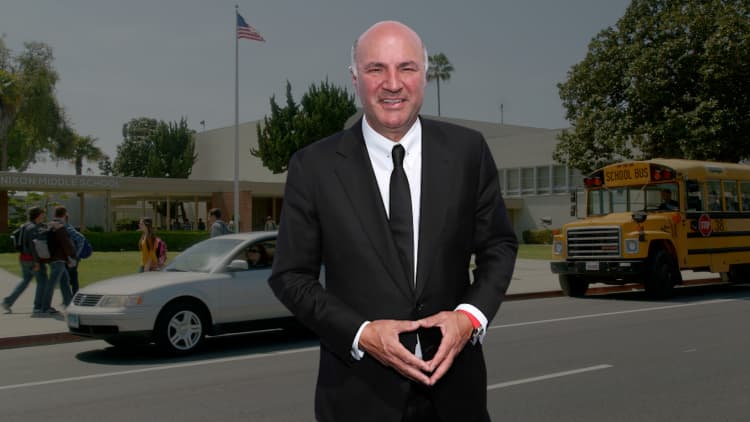Many young people are in debt, and a lot of it: A recent study found that millennials who carry debt owe an average of $36,000 each, spending about 34 percent of their monthly income paying it off.
For young people buried in debt who are banking on a bailout from their parents, a new survey provides some good news: They just might get a pretty penny from mom and dad.
Personal finance website CreditCards.com surveyed 1,000 U.S. adults in October, asking them how they would respond if their child asked for money to pay off a debt. The results reveal that parents would overwhelmingly help their kid pay off debt; around 90 percent said they would help their child, while only 10.5 percent said they would refuse to help.
It's not just a small chunk of change either. The survey found that, without expectation of being reimbursed, the average parent would give their child $5,705 to help pay off their debt. (The survey asked parents to pick from ranges: 14 percent would give $1 to $250; nearly 23 percent would give $251 to $1,000; 27 percent would give $1,001 to $5,000; just over 12 percent would give $5,001 to $20,000; and nearly 13 percent would give more than $20,000.)
For parents who do expect to get their money back, the average parent would dole out $7,936, according to the study.
When it comes to picking the right parent to ask for help, CreditCards.com found you're better off asking dad. On average, surveyed dads (not expecting repayment) would gift $7,045, compared to the average mom who would give $4,643.
The type of debt being paid off effects the parents' decision whether or not to help out. About 57 percent of parents would never help their child with gambling debt, followed by nearly 16 percent of parents who would never help with credit card debt. Eight percent of parents surveyed would never assist with auto loan debt, just over 6 percent would never help with student loan debt and about 4 percent wouldn't help with mortgage or rent debt. Nearly 4 percent of parents would never help with utilities debt and about 2 percent wouldn't help with medical debt.
For parents who want to help their kids pay off debt, CreditCards.com analyst Ted Rossman recommends setting clear expectations beforehand about whether you expect to be paid back and by when.
"And don't let your children use you as a crutch forever," Rossman says. "They need to establish their own emergency funds and healthy borrowing habits."
Parents can also help their kids learn how not to get into excessive debt. Personal finance expert and star of ABC's "Shark Tank" Kevin O'Leary recently told CNBC Make It that education about finances needs to start early on.
"I think kids should be taught at the age of 5 onward where money comes from," O'Leary tells CNBC Make It. "We do a very poor job in North America telling kids about finance. We teach them sex education, geography, math, reading, all kinds of learning skills, but we don't tell them about debt. No wonder they get into trouble as soon as they get a credit card.
"Debt is a bad thing," he adds. "Understanding where money comes from is important. Make money a part of the family at the dinner table. Talk about where it comes from, how you make it and how hard it is to have."
Don't miss: Kevin O'Leary reveals his biggest money mistake happened in Vegas in his 20s (plus, what he learned)
Like this story? Subscribe to CNBC Make It on YouTube!
Disclosure: CNBC owns the exclusive off-network cable rights to "Shark Tank."



